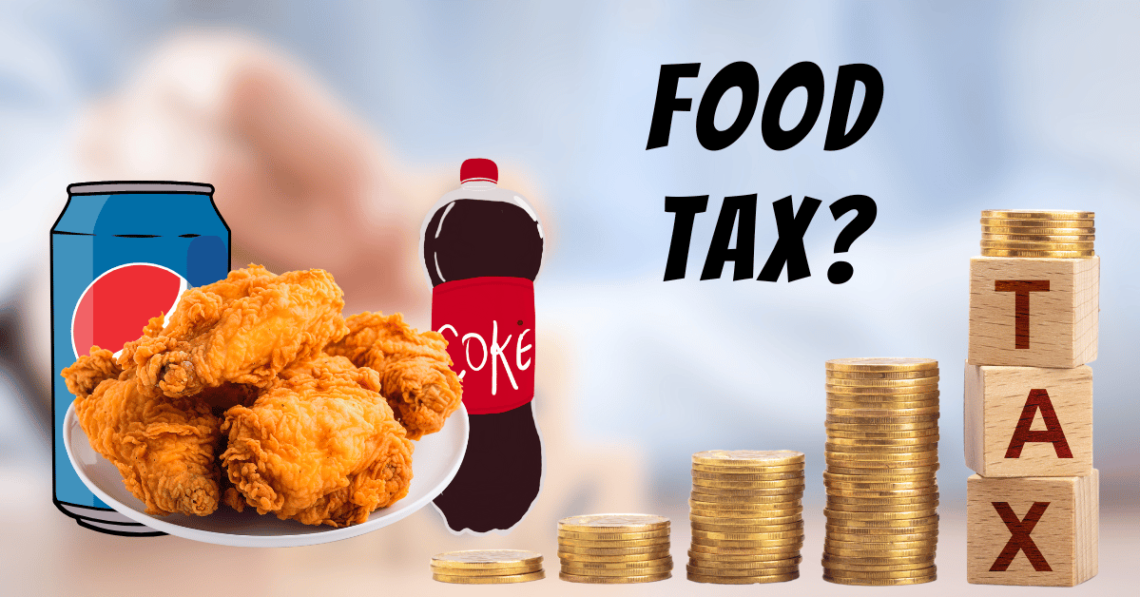Disclosure: This post contains affiliate links, meaning that if you are to make a purchase via these links, the blog author receives a small commission. This helps to fund the mission of Spencer’s Whole Foods Plant Based Eats and Treats, which is to be on the frontier in the fight against obesity and chronic disease in Trinidad & Tobago by contributing to changing the dietary environment of the nation.
As an Amazon Associate, the blog author earns from qualifying purchases.
Flawed Newspaper Opinion article
The writer of this opinion article dropped the ball when it came to addressing the prevailing topic.
The article went off course at this point in the article quoted below:
“In doing so, however, the minister must appreciate that business operations here are still conducted under a free market system where government interventions ought not to disrupt the forces of supply and demand unless there are significantly compelling reasons to do so.”
Allow the blog author to provide the necessary context for this opinion piece.
At the recent U Health & Wellness Expo at the Hyatt Regency Hotel in Port-of-Spain in Trinidad, the Minister of Health, Mr Terrence Deyalsingh made some comments regarding the food that the local population eat daily and the epidemic of chronic diseases plaguing the local citizens.
And it is these specific comments made by the Health Minister that the newspaper editor is opining on.
Whilst the opinion article acknowledges the dire chronic health crisis that the Health Minister is commenting on, the solutions that the article put forward and the reasons behind them are very flawed.
The flaws in the opinion piece start with the statement referenced earlier.
Health Snapshot of Trinidad & Tobago (with a warning)
Dr Roshan Parasram, the Chief Medical Officer is on record warning that there wouldn’t be enough bed space, even with the increase in bed space provided by the new and renovated hospital infrastructure if the trend of chronic disease in the population is not stemmed.
Trinidad and Tobago’s hypertension rate of 25%-30% is higher than the Caribbean average of 23%, which in turn, is higher than the global average of 17.6%.
Trinidad and Tobago, according to CARPHA, had the 3rd highest age-standardised mortality rate due to diabetes complications in the Americas in 2019.
So, in essence, our population is sicker than the Caribbean average and sicker than the global average in terms of hypertension and diabetes…
…but this isn’t a significantly compelling reason for government intervention?
I believe government intervention should have happened at least 10 years ago, especially when the STEPS report was published back in 2011.
To quote the same STEPS report (from 13 years ago):
Trinidad and Tobago has the highest prevalence and high morbidity and mortality rates for chronic noncommunicable diseases in the Caribbean, and these rates have been steadily increasing over time. As such, NCDs account for over 60% of premature loss of life (death before 70 years) in Trinidad and Tobago.
…but this isn’t a significantly compelling reason for government intervention?
Sadly, this is where three Government administrations (and two Health administrations) badly dropped the ball.
But that’s just my opinion.
Government Interventions on Food in Trinidad & Tobago
Speaking of governments, time to address another flaw in the earlier referenced statement…
…government interventions ought not to disrupt the forces of supply and demand…
I beg to differ.
Governments have been ‘disrupting the forces of supply and demand’ for generations, most times intentionally.
And Trinidad & Tobago is no exception.
How do they do it?
Taxes.
This Government administration has been using taxes to encourage and discourage the purchase of certain items, food being no exception. Here are two examples:
1)In the 2021 Budget statement, the Minister of Finance applied VAT to “ a wide range of imported luxury food items, such as lobster, escargot, smoked salmon, pâté, clams, strawberries, champagne, apples and grapes”
This was done to discourage the purchase of these imported food items and to “Buy Local, eat local!”
...especially at a time when the country can benefit from easier access to healthy foods e.g. fruits and vegetables.
— Spencer's Whole Foods Plant Based Eats and Treats (@SpencersWFPB) March 8, 2024
This shows that legislators play a major role in determining the food environment of a country or nation#FBFriday #TrinidadandTobago #Foodenvironment pic.twitter.com/XDOZ4w4nQQ
2) In the 2022 Budget statement, the same Minister zero-rated these food items: “biscuits, cooking oil, canned vegetables, cornflakes, canned fish, canned meat, juice, sausages, ham, ketchup, bottled water and pigtail”. The justification for this was that these food items were considered basic food items.
The intention for this was to make these food items cheaper and more accessible to the population. However, what the Minister has done inadvertently, is by making these ‘basic food items’, most of which are high in sugar, salt and fat, more accessible to the population, in turn making the food environment more obesogenic and disease-promoting.
In the space of 2 Budget statements, the work of the Minister of Health got even more difficult.
IMBERT ON REMOVAL OF VAT ON FOOD ITEMS#Budget2022 pic.twitter.com/R4o9whdYg0
— T&T Guardian (@GuardianTT) October 4, 2021
Ironically, this same tool can be used to be the catalyst for changes in the food environment, as demonstrated by other Caribbean countries.
This will be explained later on.
Impact of Changing Food Environment on Public Health
Okinawa, Japan

One of the lessons from places where people live (or used to live long healthy lives – which ironically bolsters this lesson) is that people are products of their environment.
Take for example the island of Okinawa, Japan.
In the past, Okinawa was among the world’s longest-lived populations. However, that is not the case now due to the influx of Westernised diets which are high in fat and lower in overall nutrition.
Okinawa now has among the worst health statistics in the whole of Japan
Trinidad & Tobago
We can even point to the effect of environmental changes right here in Trinidad and Tobago.
Dr Rohit Doon, adviser of Public Health in the Ministry of Health, mentioned that the local diet in Trinidad and Tobago in the 1960s and 1970s consisted mainly of local fruits, vegetables and starchy roots.
During that time, chronic diseases like heart disease, hypertension and diabetes were rare and deaths due to chronic diseases were even rarer.
Nowadays, the local diet is high in processed foods and beverages, animal-sourced foods, sugars, fats and salt.
In turn, heart disease is the number one cause of death in Trinidad & Tobago, followed by diabetes, cancer and cerebrovascular stroke.
Food Environment & Human Consumption
This is a quote from the Center for Disease Control and Prevention when discussing how the food environment impacts human consumption:
Having healthy food available and affordable in food retail and food service settings allows people to make healthier food choices. When healthy foods are not available, people may settle for foods that are higher in calories and lower in nutritional value. Thus, creating and supporting healthy food environments is an important part of public health work.
This will occur no matter how much “education campaigns and nutrition labelling” there is regarding ultra-processed, low-nutritional value foods and their associated risks and health complications.
Therefore, the suggestions given in the opinion piece which suggest that “allowing consumers to have a range of food options, even those considered unhealthy…” in the interest of “upholds citizens’ rights to autonomy and self-determination” is the perfect recipe for disaster!
The American example (of what not to do!)
One needs to look no further than the USA to see what the future holds in an ad libitum environment loaded with high sugar, salt, fat, animal products and their associated combinations
The USA has a healthy life expectancy of roughly 66 years and a life expectancy of 76.4 years.
When it comes to heart disease, a person in the US dies every 33 seconds from heart disease.
And that’s in a country where healthcare equipment and pharmaceuticals are pretty much readily available.
By comparison, Trinidad & Tobago, according to 2019 World Health Organisation statistics has almost the same healthy life expectancy as the USA and a lower life expectancy (at birth)
Trinidad and Tobago doesn’t have the medical resources that the USA has. The Minister of Health said in a Budget debate that:
“NCDs are one of the critical elements facing this country, and our health budget went from 3.08 billion in 2008 to 6.0 billion in 2016. That is unsustainable; we have to tackle NCDs”
Simple Food Environment Change
Therefore we as a county should be doing everything that we can to reduce the chronic disease level in our population.
Simply by changing our food environment.
How?
This isn’t a one-stop solution. However, one way to spark that change is by lobbying the government to use the tool at their disposal to change the food environment to a healthier one.
And it will not impede on the “right of individuals to make their own decisions”.
What is that tool?
Taxes
Taxes on food items isn’t a novel idea.
However, there are examples of taxes being used with the intention of improving the food environment right here in the Caribbean
#Barbados will have an increase in the excise tax on sugar-sweetened beverages. The @who recommended 20% tax will be implemented shortly as stated by Prime Minister @miaamormottley in this evening's budget presentation @hsfbarbados @senatorcrystal @CheyneJoness pic.twitter.com/sYJdKYeHrp
— HCC (@HealthCaribbean) March 15, 2022
Barbados has implemented a tax on sugar-sweetened beverages (SSB), a tax of 20%. However, Barbados is not the only country in the Caribbean to have done this.
- Dominica has a SSB tax of 10%.
- Bermuda has a SSB tax of 75%
- Grenada has a VAT on SSB of 20%
It has been shown that the implementation of taxes caused changes in consumer purchasing behaviour in Barbados.
Freedom? Or License?
Whilst the opinion article focuses on individual freedoms, one of the lessons arising out of the 2020 pandemic is that irresponsible exercising of individual freedoms can have communal consequences.
However, a pandemic is not needed to understand this lesson.
Alcohol consumption is legal in Trinidad & Tobago. However, lives can be destroyed, damaged or forever changed for the worse, due to an individual driving drunk.
There is legislation to deal with such matters so that people can be deterred from consuming alcohol whilst operating a vehicle.
One is within his/her right to drive any vehicle within his/her legal possession and is officially licenced to do such.
However, when one is speeding or driving recklessly, people can be killed or maimed when such actions are taken. And there is legislation to deal with such matters too, with the intention for drivers to drive safely (which is the same legislation for driving under the influence).
In the same vein, legislation can be used to help steer people toward better food choices by making unhealthy food choices more difficult and healthy choices easier.
Final thoughts
In conclusion, the evidence is clear: Trinidad and Tobago is facing a health crisis exacerbated by the poor food environment. It is agreed that individual freedoms are important; however, one must recognize that irresponsible exercise of these freedoms can lead to significant communal consequences.
By implementing targeted taxation policies, as demonstrated by examples in the Caribbean, there is a tremendous opportunity to reshape the food environment and steer our population towards healthier choices. The Minister of Health understands the gravity of the situation. The government should take decisive action to address the root causes of chronic disease and improve the well-being of its citizens.










One comment on “The Unhealthy Food Environment in Trinidad and Tobago: Its impact on Public Health”